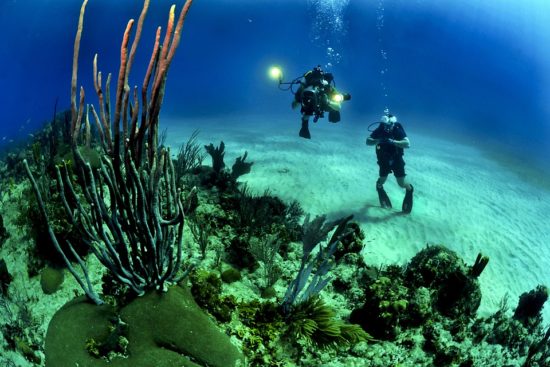“Deep-sea marine sponges may hold key to antibiotic drug resistance”
“Drug resistance to antibiotics is on the rise and there is an urgent need to develop new drugs to treat infectious diseases that are a major threat to human health globally. Researchers from Florida Atlantic University’s Harbor Branch Oceanographic Institute may have a solution to this problem using sea sponges collected from the ocean depths.
For more than 30 years, FAU Harbor Branch scientists have accumulated sea sponges and other macro-organisms from the east coast of the United States, Gulf of Mexico, Caribbean as well as European and African deep waters using manned submersibles and other methods. Many of these specimens contain large populations of microbes, some of which can be grown under laboratory conditions. The Harbor Branch Marine Microbial Collection is home to about 19,000 of these diverse micro-organisms, with 11,000 gathered from ocean depths greater than 45 meters. The collection contains more than 1,000 strains of actinobacteria, one of the most prolific microbial groups for the production of natural products. Actinomycetes produce more than half of the currently used antibiotic drugs.
In a new study published in the journal Frontiers in Microbiology, FAU Harbor Branch scientists examined 50 actinobacteria strains from these marine samples to look for new anti-infective agents. All of these strains were cultivated from marine sponges. Because they were derived from various sponge hosts collected from environmentally and geographically diverse locations, many of them can be considered to be rare actinobacteria.
Researchers screened the samples’ metabolites against a panel of bacterial pathogens that are common causes of healthcare-associated infections and are listed among the most severe threats to human health. The panel of pathogens included Candida albicans, Staphylococcus aureus, methicillin-resistant S. aureus (MRSA) and C. difficile, a cause of life-threatening diarrhea that is responsible for 453,000 cases and 29,000 deaths each year in the U.S. alone.”
Source: EurekAlert

